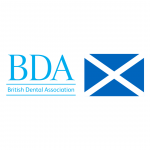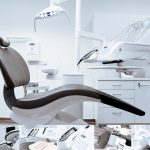The British Dental Association is delighted to announce dentist and experienced campaigner Charlotte Waite will take on a leading role in the fight for the future of dental services in Scotland.
She will take up the role of Director of BDA Scotland in October, supporting members in negotiations with the Scottish Government and overseeing outreach to the Scottish Parliament, officials, the press and wider stakeholders.
Prior to the pandemic Charlotte exposed the scandal of Westminster’s aggressive NHS fines regime, which saw millions of often vulnerable patients face £100 fines for attempting to claim free dental care or prescriptions.
Working with the media and speaking up for patients in the UK parliament, she lifted the lid on a system that saw 1.7 million fines – worth £188 million – withdrawn because the ‘fraudsters’ targeted were actually fully entitled to claim support towards NHS dental or prescription charges. Off the back of her powerful evidence to the Westminster Public Accounts Committee, the UK Department of Health and Social Care abandoned a ‘fines first’ policy, based on the presumption of guilt.
While redeployed on the front line during COVID she revealed chronic PPE shortages that left hundreds of Urgent Dental Care centres struggling to deliver care to patients in agony, when most practices were closed for routine care.
Working with partners including Mencap she has continued to press the UK government for action on backlogs for patients facing yearlong waiting times for dental treatment under general anaesthetic as a result of pandemic disruption. She has also led efforts to encourage the use of Makaton – a unique language programme that uses symbols and signs, alongside speech – within dental settings, to break down barriers to communication with dental patients with learning disabilities. She has also spoken out in the press and lobbied the UK Government for better investment and provision of dental services for people experiencing homelessness and for residents in care homes.
News of Charlotte’s appointment comes in a week the BBC revealed 82% of NHS practices in Scotland were not accepting new adult patients, with 1 in 5 stating they had waiting times of a year or longer. Researchers were unable to find any practices taking on new patients in 9 of Scotland’s 32 local authorities.
BDA Scotland has warned Ministers and officials they risk undermining the future sustainability of NHS dentistry, with cuts to financial support leaving some practices delivering some NHS treatments at a loss. There is a growing exodus from NHS dental services, with official data showing the total number of high street NHS dentists in Scotland has fallen by over 5% since the onset of Covid.
Waite will be pursuing BDA Scotland’s call for development of a new, sustainable long-term model for NHS dentistry, support for dentists in all fields of practice, and effective action to tackle Scotland’s deep oral health inequalities, which are now set to widen as a result of the pandemic.
The Glasgow-born Waite qualified in Dundee, before completing general professional training in the East of Scotland, locuming in Australia and then working in the Community Dental Service (CDS). She will be leaving her longstanding role in the CDS where she has provided dental care for some of the most vulnerable in society.
Charlotte Waite said: “I’m downing my drill to fight for the future of dentistry in Scotland. The service is on the brink and the public are living with the results. The Scottish Government pledged free NHS dental care for all, but we now face an exodus from the workforce, the risk of a two-tier system, and a shameful oral health gap that will only widen.
“Our message to every MSP and every party is that this crisis will not end without real commitment. Sit down with us and we can secure a better future for a service millions depend on.”












